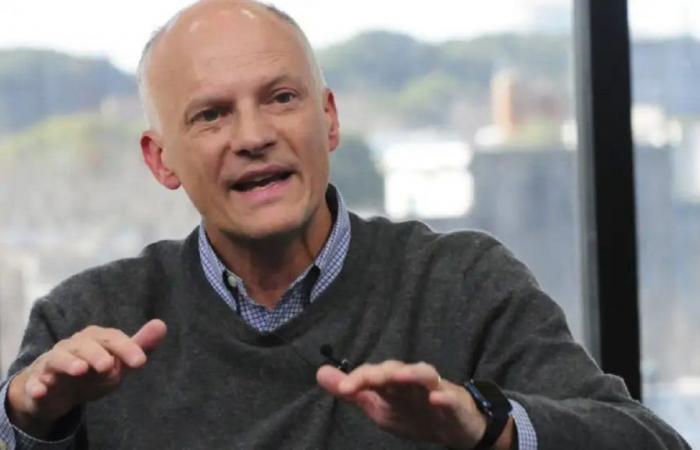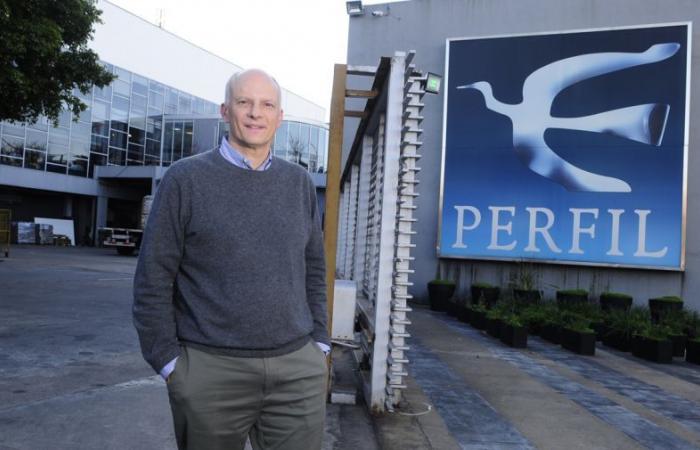Alejandro Werner, former director of the Western Hemisphere Department of the International Monetary Fundestimated that the Argentine Government could negotiate a new loan for between US$8,000 and US$10,000 million with the organization when it signs a new agreement.
“The range of fresh resources in a new agreement could be between US$8,000 and US$10,000 million. I believe that the Argentine Government should fight for that“said the former official of the organization this Monday, June 17, in radio statements.
The IMF warned that “the risks remain high” and requested exchange flexibility
Authoritarians don’t like this
The practice of professional and critical journalism is a fundamental pillar of democracy. That is why it bothers those who believe they are the owners of the truth.
For Werner, Argentina needs “three things” to achieve a new agreement cwith the multilateral credit organization: “The first is fresh money, to be able to carry out the withdrawal of the stocks in a more accelerated manner; the second point is reprofile previous debt maturities; and the third is have a policy framework that has credibility in the markets and that endorses the great work that the Government is already doing, especially in the fiscal part,” he analyzed in dialogue with Eduardo Feinmann on his program Someone has to say it by Radio Miter.
Fresh dollars, a wish from Caputo and milei
The idea of going for a new agreement with the multilateral organization was “whitewashed” by the Minister of Economy himself, Luis Caputo, who the previous week defined before businessmen that the Executive Branch wants to negotiate a new agreement with the IMF. In this way, they aim for “new money” to arrive in the country, although the head of the Treasury Palace acknowledged that the negotiations will take “some time.”
Last week, the IMF executive board approved the eighth review of the program with Argentina and authorized the disbursement of US$800 million, which eased the situation and gave the minister new letters to pursue the possibility of a new agreement.
Furthermore, the president Javier Milei met at the G7 summit last weekend with the head of the Fund, Kristalina Georgieva.
According to the repercussions of the meeting, posted by Manuel Adorni, Javier Milei’s spokesperson, “both parties expressed their commitment to continue working together to develop and implement a long-term strategy for sustainable economic growth.”
And while she made no mention of having discussed a new agreement, it was added that “during the meeting, Kristalina Georgieva congratulated President Milei on the important progress in economic reforms. In particular, she praised the recent approval of a comprehensive set of reforms and deregulation measures in the Senate, which seek to stimulate growth and economic stability.”
Why Argentino could obtain $10 billion dollars, according to Alejandro Werner
Werner detailed in the radio interview that the Fund also wants there to be a new agreement because obviously the Argentine economy, although in the last six months it has been in a better situation, still has many imbalances and many issues to resolve.
Furthermore, he added that tIt is also necessary to “fine tune and polish the fiscal adjustment a little, which is the very important anchor that this program has, but it is clearly going to need a slightly broader political agreement that perhaps implies some adjustments going forward, with some recovery in pensions and a little more expenses and taxes than the adjustment that has been given.”
New agreement with the IMF: “Fresh funds will be requested and used to exit the stocks”
“Finally, the point of greatest tension probably between the Monetary Fund and the Argentine Government is going to be the definition of an exchange and monetary policy that allows the transition to this opening of the capital account and towards a normalization of a monetary policy that pays positive real interest rates, which generate a demand for pesos supported by market prices that encourage people to have pesos and not flee to other types of currencies,” he emphasized.
Among other things, he considered that “it must be understood that Argentina, for capital to enter and for investment to develop, needs to send very clear signals that investors will be able to withdraw their money from the country.”
In that sense, he assured: “it is very important for the tranquility of the markets that it is seen that the Central Bank has resources to support the peso in extreme cases. A very complex discussion between the Fund and Argentina is going to be how these can be used. resources, under what circumstances it is possible to intervene and if there is still any intention to dollarize the economy”.
“The Fund does not want to make a program under a flexible exchange rate scheme and then have the resources used to dollarize. If the country wants to dollarize, then the design of the program would perhaps have to be different,” he stressed.
lr/ff



